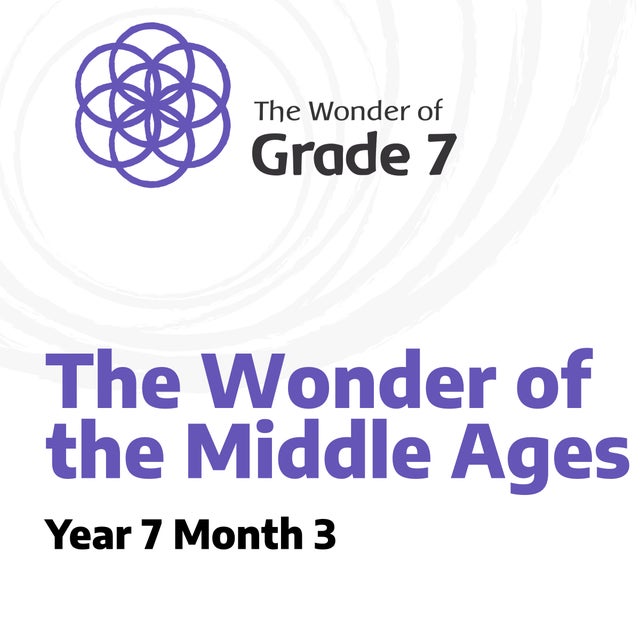- Unit Studies
- >
- Grade 7
- >
- Grade 7 Month 3 The Wonder of The Middle Ages
Grade 7 Month 3 The Wonder of The Middle Ages
SKU:
g7m3
CA$44.00
CA$44.00
Unavailable
per item
Students will explore the historical figures and series of events leading to change in Europe. The Magna Carta, Peasant Revolt and Humanism.
This unit includes a digital month-long curriculum with 15 lesson plans and 5 flexible projects. It will inspire you with beautiful images and clear instructions.
And that's not all. You will also gain access to our members-only area, which includes supporting documents, videos, resources, and community.
Curriculum Areas/Learning Outcomes
Language Arts: Language and text can be a source of creativity and joy. Developing our understanding of how language works allows us to use it purposefully.
Math: Computational fluency and flexibility with numbers extend to operations with larger (multi-digit) numbers.
Social Studies: Religious and cultural practices that emerged during this period have endured and continue to influence people. Increasingly complex societies required new systems of laws and government. Economic specialization and trade networks can lead to conflict and cooperation between societies.
Applied Design, Skills, and Technologies (ADST) and Arts Education are clearly covered through the artistic components of the research project.
Math: Computational fluency and flexibility with numbers extend to operations with larger (multi-digit) numbers.
Social Studies: Religious and cultural practices that emerged during this period have endured and continue to influence people. Increasingly complex societies required new systems of laws and government. Economic specialization and trade networks can lead to conflict and cooperation between societies.
Applied Design, Skills, and Technologies (ADST) and Arts Education are clearly covered through the artistic components of the research project.
Curriculum Overview
Create the context for this unit. Daily Wonder curriculum teaches three history units in Grade 6 that tie in with this unit on the late Middle Ages. Students are led through the founding of Rome; the Fall of the Roman Empire and the spread of Christianity and the rise of Islam; and the high Middle Ages with a focus on Medieval times and King Arthur’s Knights. Children learn best when they have a context and a meaningful connection to what they are learning. It is advisable to find a way to bring your child a deeper foundation for why they are now learning about the late Middle Ages. There may be some books, movies, or documentaries that could lay a foundation for your child, so that they can really get the most out of this unit.

